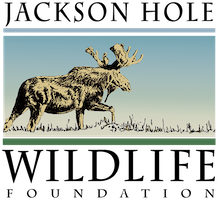Kyle Kissock – Communications Manager
This November, we released a survey to explore how Nature Mapping Jackson Hole (NMJH) could be improved to create a more engaging experience for the NMJH community.
Our flagship citizen-science program, NMJH has existed under the umbrella of the Jackson Hole Wildlife Foundation (JHWF) since 2011. NMJH currently includes 678 active volunteers who have collected over 59,000 wildlife observations! Over the years, NMJH has strived towards several goals: 1) keep common species common by increasing citizen’s knowledge of an appreciation for wildlife 2) engage citizens in long-term wildlife data collection 3) inform management decisions that favor wildlife sustainability and 4) contribute data to the Wyoming Game & Fish Department’s Wildlife Observation System.
Despite the overall success of NMJH, we realize that the longevity of any citizen-science program relies on continued motivation of existing volunteers, as well as the ability of program facilitators to recruit new citizen-scientists. To address these issues, we decided to reach out to the community for feedback. JHWF partnered with graduate students from George Washington University’s Trachtenberg School of Public Policy & Public Administration to collect input from volunteers. The graduate students developed surveys, conducted interviews, and researched similar volunteer-based environmental organizations, which culminated in a 30 page report outlining recommendations to improve NMJH moving forward.
The highlights from the GWU report are summarized below. Thank you to all who participated in the feedback process! Based on what you told us, we will continue to work towards as many of the recommendations as we can in the near future.
- 84% of respondents believe that additional opportunities to engage the community with environmental issues facing Jackson Hole are important, while 74.4% respondents feel increased social programming is important. We hope to address this by offering increased volunteer programing that includes ongoing training opportunities and social events for NMJH volunteers to network with each other and professional scientists who study wildlife.
- The majority of Nature Mappers have been inconvenienced by data recording software, which may lead to decreased participation in the program. Surveys suggested we improve the user interface and data upload function of mobile app and desktop database to encourage more participation among NMJH volunteers. We are currently addressing this issue with a software developer, which will result in an easier to use website and a “progressive web app.” Changes should allow Nature Mappers to record sightings faster and easier.
- The Nature Mapping community would like greater transparency around how Nature Mapping data is used by state and local agencies and increase overall communications to volunteers. Going forward, we will try to provide more context for data usage in our eNews editions, as well as more opportunities to meet with scientists and planners who are using our data.
- 88% of the volunteer respondents felt that it is “important” or “very important” to have additional and/or supplemental training after that initial session when they join. Similarly, many volunteer organizations which rely on citizen-science provide “how to” manuals or “advocacy toolkits” that are easily accessible to volunteers. GWU students suggested we develop a manual for a nature mapping program on public and private land and backyard observations.
- Our eNews is a big hit! Results of the surveys suggest we should continue to send eNews once a month. 100% or respondents found NMJH eNews informational. A majority of Nature Mappers would also like us to include “tidbits” of pertinent wildlife information between eNews editions. Within the scope of our mission, we will explore new ways to obtain Jackson Hole wildlife news and disseminate it with the community.
Feel free to contact us with questions or additional thoughts and ideas!
